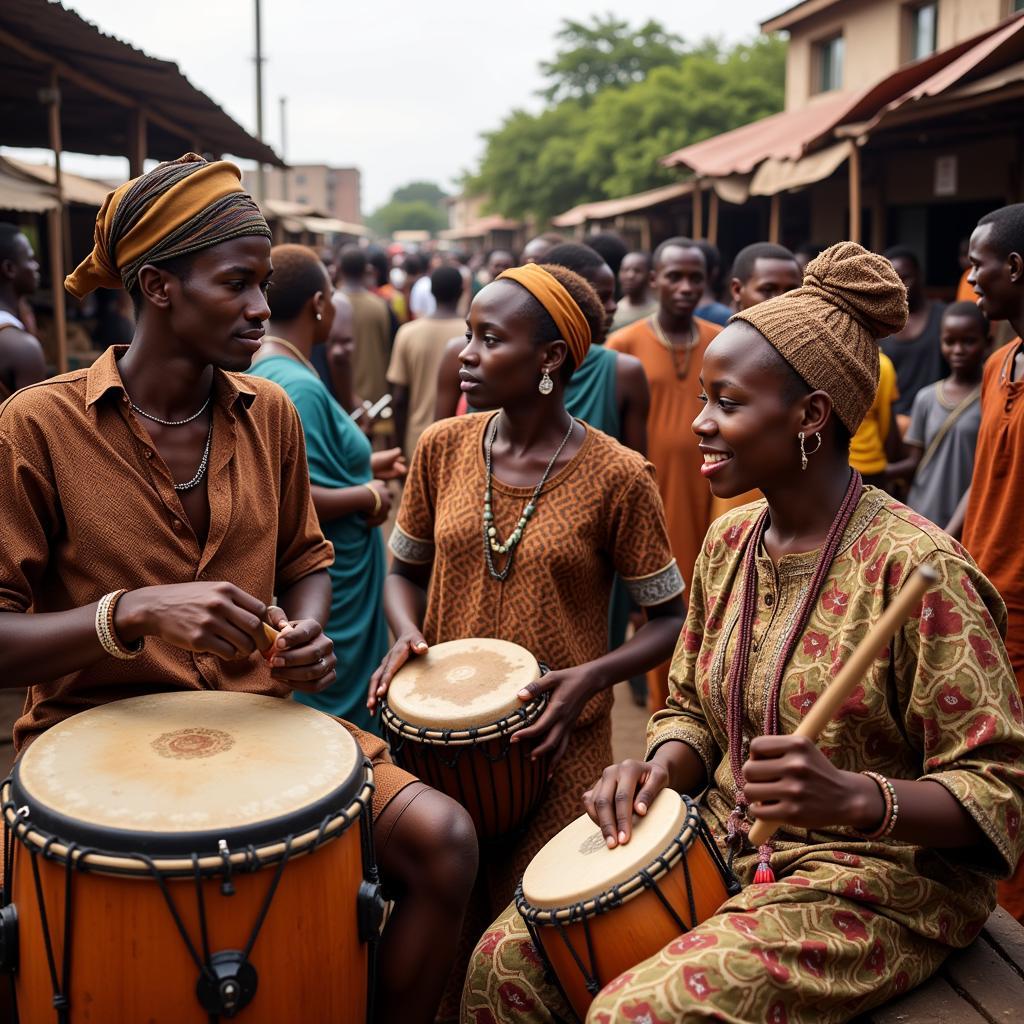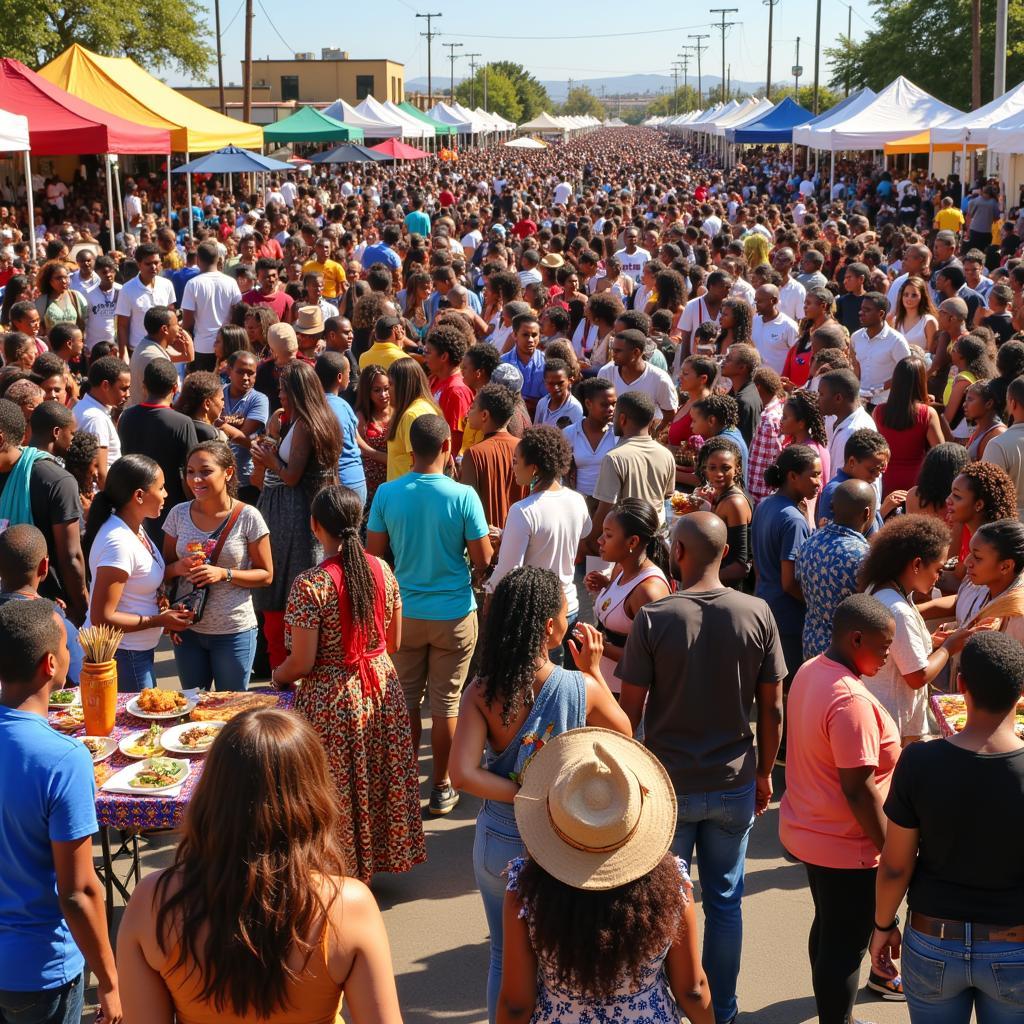Exploring African American Women’s Literature: A Syllabus for Readers
This comprehensive syllabus aims to provide a roadmap for readers eager to delve into the rich and diverse world of African American women’s literature. From foundational works to contemporary voices, this guide highlights key themes, authors, and movements that have shaped this literary landscape.
African American women’s literature, encompassing a vast array of genres, has consistently challenged societal norms, explored complex identities, and offered powerful narratives of resilience, strength, and resistance. It’s a testament to the creative spirit of these authors, who have used their words to illuminate social issues, celebrate Black experiences, and inspire generations.
A Historical Overview
This syllabus begins with a historical overview of African American women’s literature, tracing its evolution from early writings to the present day. We’ll examine key milestones, influential authors, and the social and political contexts that shaped the literary landscape.
Early Voices: From Enslavement to Emancipation
The seeds of African American women’s literature were sown during the period of enslavement, with narratives like Harriet Jacobs’s “Incidents in the Life of a Slave Girl” (1861) offering invaluable insights into the realities of Black women’s lives under oppression. Following emancipation, authors like Frances E.W. Harper and Anna Hudlun began to publish their works, exploring themes of freedom, identity, and the search for agency in a newly formed nation.
The Harlem Renaissance and Beyond:
The Harlem Renaissance (1920s-1930s) marked a significant turning point for African American literature, fostering a vibrant artistic scene and amplifying Black voices. Authors like Zora Neale Hurston, Jessie Fauset, and Nella Larsen captured the spirit of the time, exploring themes of race, gender, and the complexities of Black identity.
The Civil Rights Movement and Its Literary Legacy
The Civil Rights Movement of the 1950s and 1960s served as a catalyst for change and inspired a new generation of African American writers. Authors like Maya Angelou, Toni Morrison, and Alice Walker emerged as powerful voices, using their prose to expose racial injustices, challenge societal structures, and advocate for equality.
Key Themes and Concepts
Throughout the syllabus, we will examine recurring themes and concepts that permeate African American women’s literature:
-
Race and Identity: Exploring the complexities of Black identity, particularly in relation to race, gender, and class.
-
Gender and Sexuality: Examining the intersection of race and gender, focusing on women’s experiences within patriarchal structures and the challenges they face in navigating societal norms.
-
Family and Community: Investigating the role of family and community in Black life, including the impact of generational trauma, the strength of familial bonds, and the resilience of communities under oppression.
-
Spirituality and Faith: Delving into the spiritual and religious experiences of Black women, exploring themes of resilience, hope, and the role of faith in navigating personal journeys.
-
History and Memory: Examining the power of history and memory in shaping identity, reclaiming forgotten narratives, and ensuring the preservation of Black experiences.
-
Resistance and Empowerment: Highlighting the ways in which Black women have actively resisted oppression, challenged systems of power, and forged paths towards self-determination and empowerment.
Essential Readings
This syllabus highlights essential works by African American women writers, representing diverse genres, styles, and voices:
Foundational Works:
-
“Incidents in the Life of a Slave Girl” by Harriet Jacobs (1861): A harrowing yet powerful account of a young Black woman’s struggle for freedom from enslavement.
-
“Iola Leroy” by Frances E.W. Harper (1892): A novel exploring themes of identity, freedom, and the search for belonging in a post-slavery society.
-
“Their Eyes Were Watching God” by Zora Neale Hurston (1937): A captivating novel following a young Black woman’s journey of self-discovery and pursuit of love and fulfillment.
-
“The Color Purple” by Alice Walker (1982): A groundbreaking novel that brought the complexities of Black women’s lives to the forefront, exploring themes of abuse, resilience, and spiritual awakening.
Contemporary Voices:
-
“Beloved” by Toni Morrison (1987): A haunting and lyrical novel that delves into the legacy of slavery and its enduring impact on generations of Black families.
-
“The Bluest Eye” by Toni Morrison (1970): A poignant exploration of racism and its impact on a young Black girl’s self-perception and longing for beauty.
-
“The House on Mango Street” by Sandra Cisneros (1984): A coming-of-age novel narrated by a young Latina girl, capturing the joys, struggles, and complexities of navigating adolescence in a marginalized community.
-
“Americanah” by Chimamanda Ngozi Adichie (2013): A multifaceted novel exploring the complexities of identity, race, and the immigrant experience, told through the journey of two Nigerian characters navigating life in the United States and Nigeria.
-
“Homegoing” by Yaa Gyasi (2016): An ambitious novel that traces the interconnected lives of two half-sisters from Ghana, highlighting the lasting impacts of colonialism and the transatlantic slave trade on generations of Black families.
-
“The Hate U Give” by Angie Thomas (2017): A young adult novel that confronts issues of racial injustice, police brutality, and the Black Lives Matter movement, told through the eyes of a teenage girl who witnesses the fatal shooting of her best friend.
Beyond the Pages: Exploring Connections
This syllabus encourages readers to engage with African American women’s literature beyond the pages.
“The Voice of the People”: Engaging with Oral Traditions
-
Listen to poetry slams: Attend live poetry slams or watch online performances, experiencing the power of spoken word and the artistic expression of African American women poets.
-
Explore Black storytelling traditions: Research and engage with Black storytelling traditions, including the role of griots, spirituals, and folk tales in preserving cultural heritage and shaping narratives.
Building Bridges: Engaging with Other Communities
-
Seek out diverse perspectives: Explore the works of authors from other marginalized communities, including Latinx, Native American, LGBTQ+, and immigrant voices.
-
Participate in literary discussions: Join book clubs or attend literary events that feature diverse perspectives on African American women’s literature and its impact on contemporary society.
Enriching the Journey: Additional Resources
-
The Schomburg Center for Research in Black Culture: Explore the vast collection of African American literature, art, and history housed at the Schomburg Center in New York City.
-
The National Museum of African American History and Culture: Visit the museum in Washington, D.C. and discover the rich history and contributions of African Americans, including the impact of their literary voices.
-
Black Women Writers: A website dedicated to showcasing the works of Black women writers and promoting their literary contributions.
-
The African American Literary Heritage Web Archive: An online platform that preserves and showcases the historical and literary achievements of African Americans.
The Power of Storytelling
As you embark on this journey through African American women’s literature, remember that storytelling is a powerful tool for understanding, empathy, and change. It can bridge divides, challenge assumptions, and illuminate the human experiences that bind us all.
This syllabus serves as a starting point for your exploration. Embrace the diverse voices, perspectives, and journeys within African American women’s literature. Let their stories challenge you, inspire you, and offer new insights into the richness and complexity of the human experience.


